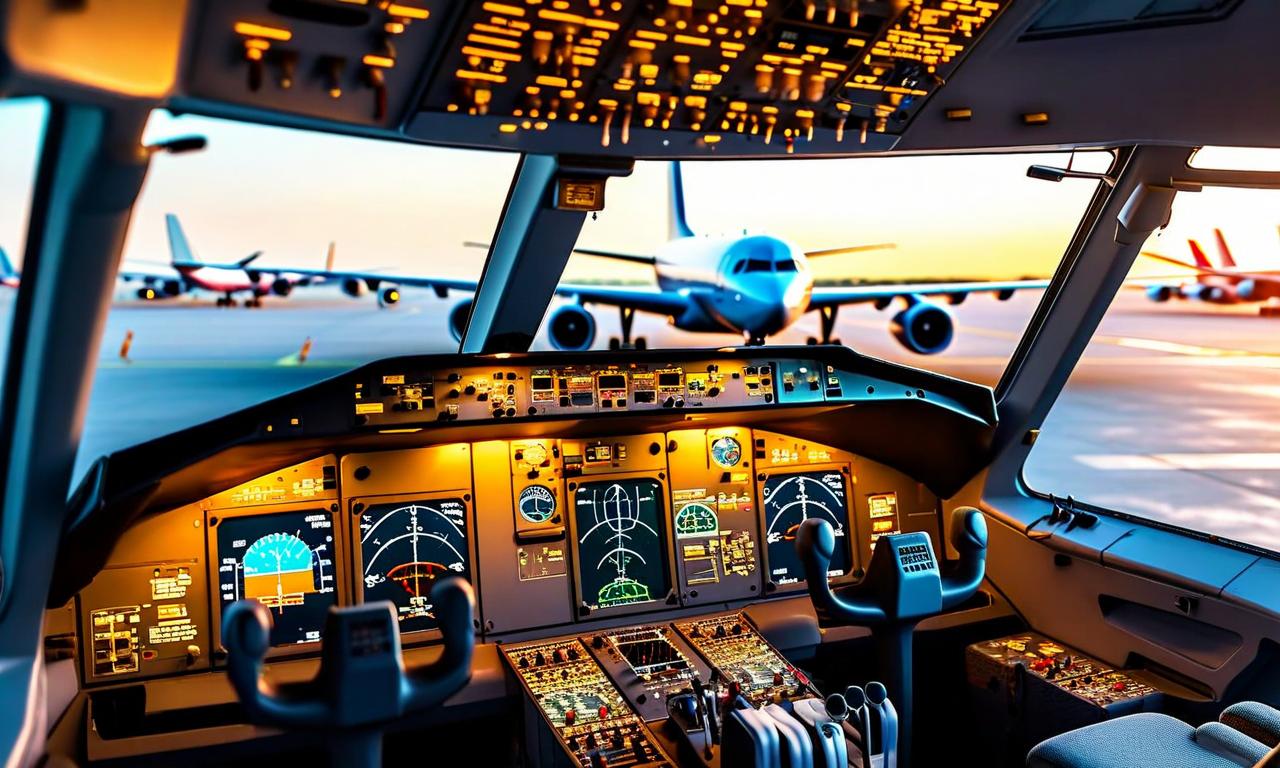IATA Proposes Raising Commercial Pilot Age Limit to 67 Amid Global Shortage
The International Air Transport Association (IATA) has proposed increasing the upper age limit for pilots in multi-pilot commercial flights from 65 to 67 years. This proposal, submitted to the International Civil Aviation Organization (ICAO), aims to address the growing pilot shortage in the aviation sector. IATA argues that the previous age limit increase did not compromise safety. Some countries like Canada, Australia, and New Zealand already have no upper age limits for pilots. IATA also noted that mental health conditions and substance use, leading concerns for medical-cause accidents, are more prevalent in younger demographics. Separately, India has submitted a paper to ICAO expressing concerns about foreign airlines recruiting pilots from Indian carriers without proper consultation.

*this image is generated using AI for illustrative purposes only.
The International Air Transport Association (IATA) has put forward a proposal to increase the upper age limit for pilots operating multi-pilot commercial flights from 65 to 67 years. This move comes as a response to the growing pilot shortage in the aviation sector, where industry growth is outpacing the available supply of qualified pilots.
Addressing the Pilot Shortage
IATA, which represents approximately 350 airlines worldwide, including major Indian carriers such as Air India, IndiGo, and SpiceJet, has submitted this proposal to the International Civil Aviation Organization (ICAO). The association argues that the previous increase in the age limit from 60 to 65 years, implemented in 2006, did not compromise aviation safety.
Global Perspective
The proposal aligns with practices already in place in some countries. Canada, Australia, and New Zealand, for instance, have no upper age limits for pilots. IATA's initiative is also in line with the United Nations Sustainable Development Goals, as it supports the retention of experienced pilots in the workforce.
Safety Considerations
In support of their proposal, IATA cited an interesting fact: mental health conditions and substance use, which are leading concerns for medical-cause accidents, tend to be more prevalent in younger demographics. This suggests that retaining older, more experienced pilots could potentially contribute to maintaining high safety standards.
India's Concerns
In a related development, India has separately submitted a working paper to ICAO. The paper raises concerns about foreign airlines recruiting pilots from Indian carriers without proper consultation, potentially disrupting their operations. This highlights the global nature of the pilot shortage issue and the complex dynamics of the international aviation labor market.
Implications for the Aviation Industry
If approved, this proposal could have significant implications for the global aviation industry:
- Alleviating the pilot shortage by retaining experienced personnel
- Potentially improving safety standards through the retention of seasoned pilots
- Addressing the challenges posed by rapid sector growth
- Balancing the needs of different countries and airlines in a globalized industry
As the proposal is under consideration by ICAO, the global aviation community will be closely watching for the outcome and its potential impact on the industry's future.
























